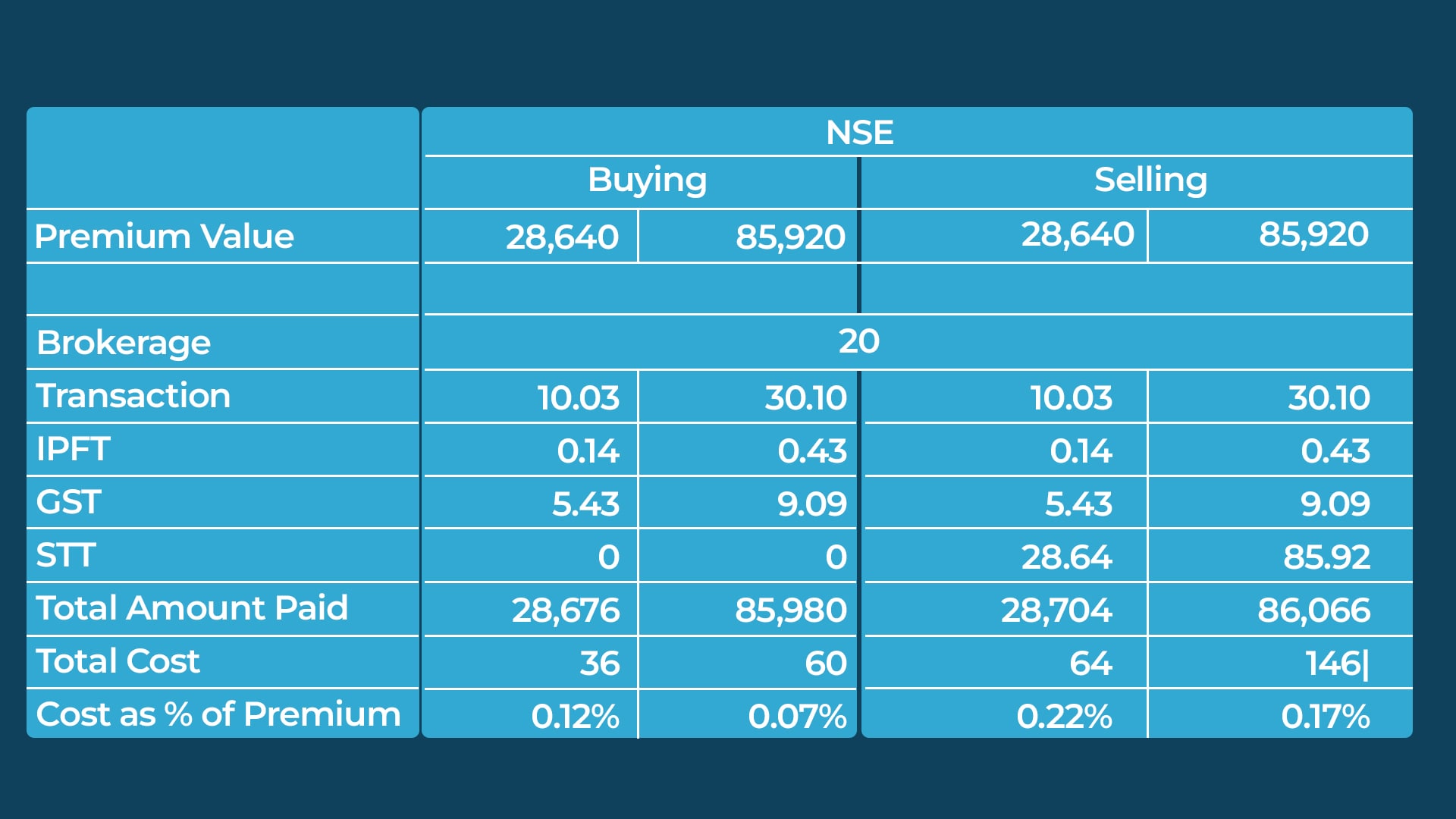
As the National Stock Exchange increased the lot size for index derivative contracts in accordance with the revised guidelines by the Securities and Exchange Board of India, the value of premium paid by trader is also set to rise.
However, as the lot size for Nifty 50 derivative contracts are set to triple from the current 25 to 75 by Nov. 20, the overhead charges paid as taxes and fees may not rise by a proportionate amount.
Let us figure out the changes with an illustrative example.
The premium paid for 'at the money' for the Nifty 50 call option at the 24,950 strike—which is set to expire four days later on Oct. 24—opened at Rs 114.65 on Oct. 21, a day when the Nifty had opened at 24,956.
With the current lot size of 25, a Nifty 50 index option buyer for the above call would have paid a premium of Rs 28,640 for buying 10 lots—exclusive of brokerage fee, transaction charges, and taxes.
Now as per the current norms, assuming a brokerage fee of Rs 20 per transaction, the post-charge amount paid for buying the option on the National Stock Exchange would total to Rs 28,676. This means there is a total overhead cost of Rs 36, representing 0.12% of the premium amount.
For transactions done on the NSE, an additional cost of 0.0005% is included on selling options for a contribution towards the Investor Protection Fund Trust. This comes out to be Rs 0.14 in the above-stated example.
On the selling side, the charges include the securities transaction tax, which for options amounts to 0.1% of the premium amount.
However, under the revised lot size of 75, if one were to buy 10 lots, the total costs come to Rs 60, which represents 0.07% of the premium value. This is lower than the 0.12% of the premium amount that is being paid currently.

Even as the cost of executing an order for the same number of lots falls against the value of premium paid, in an absolute comparison against the earlier cost incurred, it rises by 67% or 126%, depending on whether the individual is buying or selling.
This is, of course, under the assumption that the brokerage fee charged remains unchanged.
On Saturday, Oct. 19, Kotak Securities announced a revision in charges that will take effect from Nov. 4, citing a reduction in the number of orders placed due to the new guidelines by the SEBI.
The brokerage has introduced a charge of Rs 10 on all intraday trades across segments and across all plans, while the charges on carry forward derivative trades are reduced from Rs 20 to Rs 10.
Kotak Securities stated that the new guidelines, which will take effect on Nov. 20, will increase the lot sizes in derivatives trading by 2-3 times.
Essential Business Intelligence, Continuous LIVE TV, Sharp Market Insights, Practical Personal Finance Advice and Latest Stories — On NDTV Profit.























